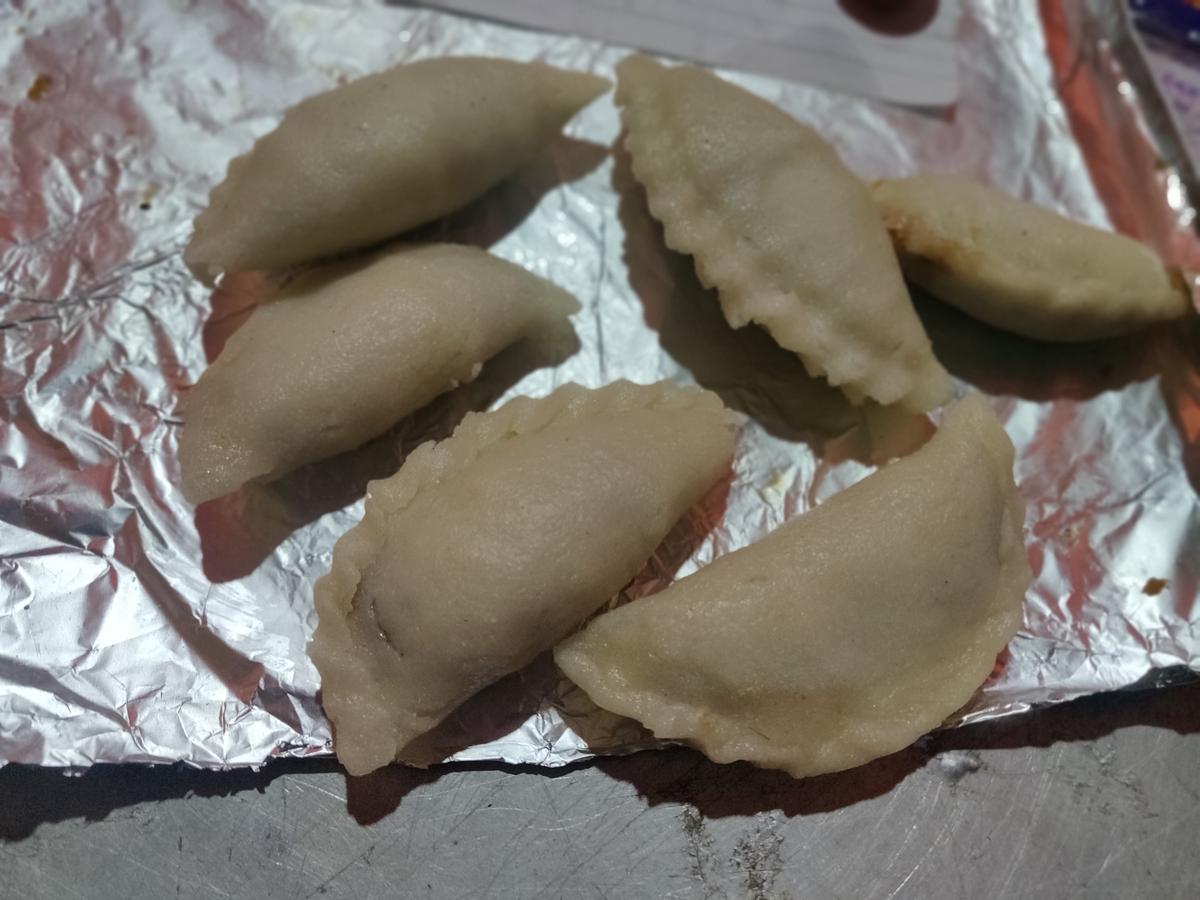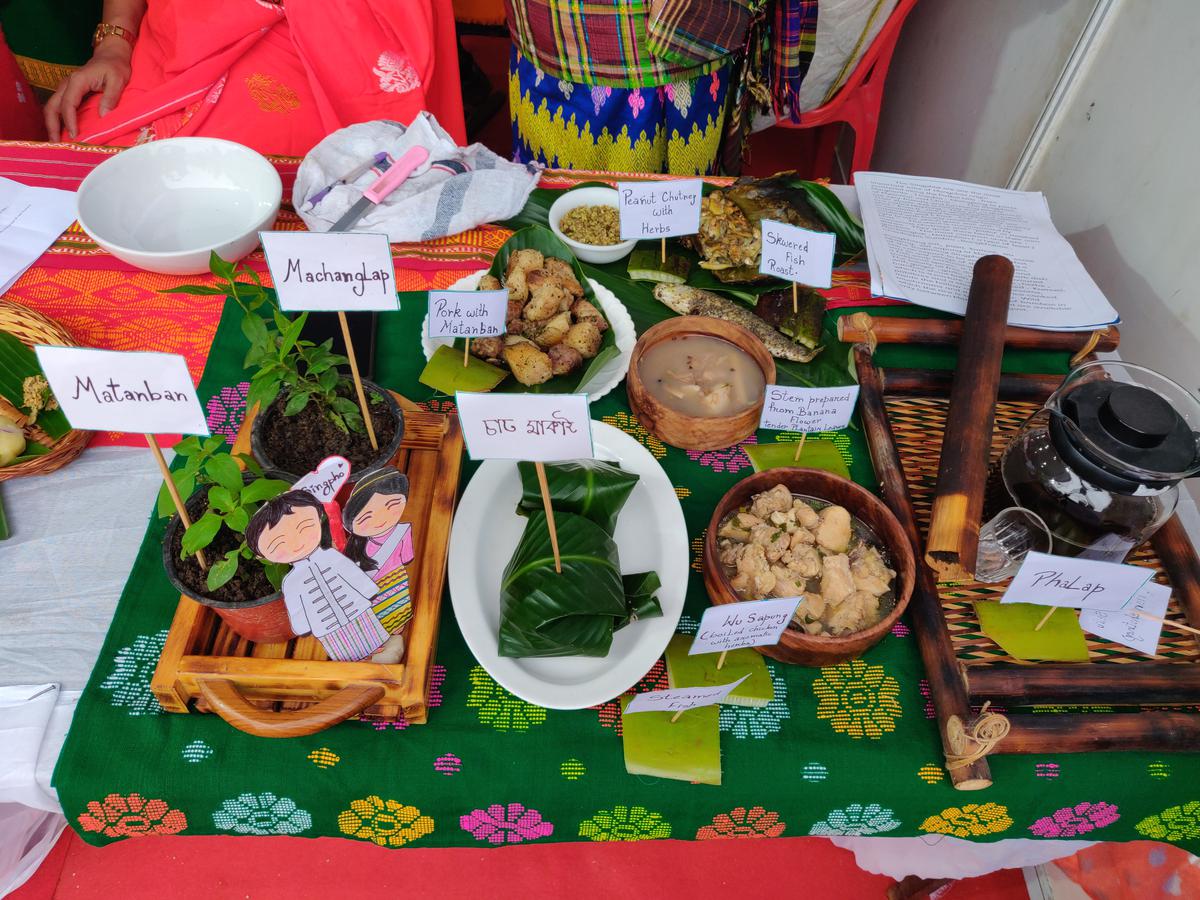A trip to Assam offers a dive into its diverse cultural experiences and Rongali, the cultural festival of Guwahati, is a good place to start
A trip to Assam offers a dive into its diverse cultural experiences and Rongali, the cultural festival of Guwahati, is a good place to start
There are so many layers of experiences in Assam that I found myself going into Google search overdrive. Attending the Rongali cultural festival was a crash course in getting acquainted with every experience the state had to offer.
Held in the last week of April in Guwahati, it was organized by Trend MMS, a socio-cultural organization with the theme Vocal for Local. It brought together some of the talents, artists and entrepreneurs of Assam at one place – Veterinary College Ground, Khanapara.
Organized by entrepreneur Shyamkanu Mahant, the festival’s colorful venues included folk musicians, weavings such as muga silk, and food traditions such as bamboo shoot pickles, pork on skewers, and jars of ghost jholokia. ,
Pork fry from stalls
In the same breath, new age fashion shows and onstage musical performances of Rongali vibes kept the conversation relevant and entertaining. Young people rapped on the open mic stage, while the performers worked live on blank canvases, surrounded by spectators who watched the final part come alive over three days.
food for thought
Doctor Se Recipe Creator and Food Influencer Geeta Dutta organized a traditional food exhibition at the event. They took us by the hand to understand how the localities affect the food of the tribals. “Assam is a state of hills, plains and valleys occupied by many tribes. There are so many medicinal plants and wild foods that we want to revive the culture of using them.” Under his guidance, we try foods from different tribes, which are also available in authentic restaurants across the city.

It is a sweet starter made from glutinous rice powder, filled with jolpan (breakfast) with molasses and sesame seeds and a refreshing smoky tea from the Tsingpho tribe. We follow it with rice beer which is a staple among the tribes, a dish of wild wild mushrooms and mishagi leaves (mudru), underscored by the sharp pungency of the fish fermented in khar (alkaline) by the Dimasa tribe. has gone.
From Mishing cuisine we offer local fish cooked in taro shoots and black lentils of the Bodo tribe with pork and roselle leaves. We learn that the Karbi tribe uses the same seeds in cooking, making their food almost oil free. The food consumed by the Muslim community is a unique blend of Mughal-inspired cuisine rooted in Assamese ingredients.

pitha
To add to that, you’ll also need to bring back a bottle of Rice Beer. An upcoming rice wine, XAJ, is a good choice. Founder Akash Gogoi, who presented it at Rongali, has focused on making it better filtered and smoother. Fermented pitha (disc-shaped dry cake) mixed with local medicinal herbs and different types of rice goes into making it. Compare Gogoi wines to Japan, Soju from Korea and Baiju from China.

food exhibition
“I belong to the Ahom community and our food habits are similar to those of Myanmar, Vietnam and Thailand. Homemade rice wine is filtered with a cloth and is not the cleanest. While it’s not the first—Judima was launched last year by the Dima Hasao tribe and won the GI tag for rice—XAJ is a balanced blend between pinot noir and white wine, and has a smoky finish that complements the sweetness of rice. Balances it perfectly.
Mahanta says, “Rongali Bihu marks the beginning of the Assamese New Year. The state is ideal to visit during spring. Our festival aims to reflect its cultural nuances and provide a platform for entrepreneurs to present their interpretation of the state.” Guwahati, they tell us, is the perfect central base that connects a traveler to a variety of experiences.